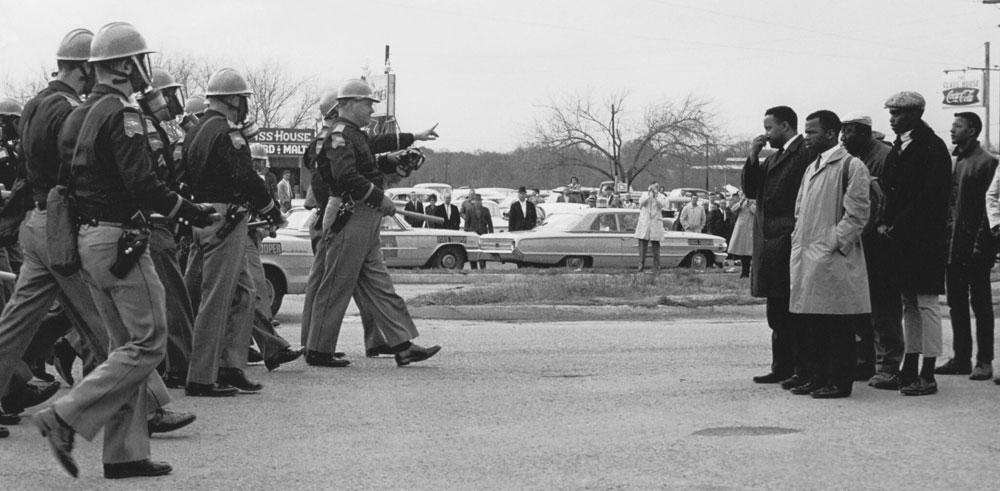
July 18, 2020; The Root
Upon the deaths of Representative John Lewis and the Reverend Cordy Tindell (C.T.) Vivian this past weekend, we reflect on what it is that gives someone the drive to spend their lives fighting for justice, even as movements ebb and flow.
Right now, we are in a flow period, one where the very terms of the struggle are being renegotiated. It is an exciting moment where youth leadership has moved forward with a dedicated, rigorous, and exuberant sense of new possibilities. There is a lot to be unlearned and learned now, and there are some lessons to be carried forward.
In the mid-1960s, there was also a lot to be learned about the disciplines of liberatory practice at the Student Nonviolent Coordinating Committee (SNCC), the organization that Ella Baker founded and where John Lewis came up as a student leader. The first was that each person had to do whatever was necessary to make real the collective goal of a racially and economically just society, even when the thing you were called to do required growth or was way out of one’s personal comfort zones.
Baker, a mentor down to her bones, said it this way: “One of the things that has to be faced is the process of waiting to change the system, how much we have got to do to find out who we are, where we have come from, and where we are going.”
That takes humility, and a sense that although you have to embody all of it to the greatest degree possible, you will never be finished trying to get it right. As Baker said, “There is also the danger in our culture that because a person is called upon to give public statements and is acclaimed by the establishment, such a person gets to the point of believing that he is the movement.”
This idea of shared leadership—of sharing leadership—is coming through in the Black Lives Matter movement in ways that are sometimes resisted mightily by those who want a single charismatic leader to follow. But Lewis, as one of those mentored by Ella Baker, among whom one finds Rosa Parks, Stokely Carmichael, and Diane Nash, was not only a proponent of love and disruption, believing that where love for our fellows failed, there was a need for disruption of the most serious kind. He also believed deeply in the power of young people to make a new world—to make that beloved community—which was never as much about making others do things (although that is critical, of course) as it was about being that thing yourself. As Lewis wrote:
Sign up for our free newsletters
Subscribe to NPQ's newsletters to have our top stories delivered directly to your inbox.
By signing up, you agree to our privacy policy and terms of use, and to receive messages from NPQ and our partners.
Anchor the eternity of love in your own soul and embed this planet with goodness. Lean toward the whispers of your own heart, discover the universal truth, and follow its dictates. Release the need to hate, to harbor division, and the enticement of revenge. Release all bitterness. Hold only love, only peace in your heart, knowing that the battle of good to overcome evil is already won. Choose confrontation wisely, but when it is your time don’t be afraid to stand up, speak up, and speak out against injustice. And if you follow your truth down the road to peace and the affirmation of love, if you shine like a beacon for all to see, then the poetry of all the great dreamers and philosophers is yours to manifest in a nation, a world community, and a Beloved Community that is finally at peace with itself.
Lewis was still making time to stand shoulder to shoulder with young protestors until mere months before his death. “He didn’t have to stand with us, he chose to,” Malkia Devich Cyril, the founder and senior fellow of MediaJustice, is quoted as saying. “That’s real leadership.”
Britany Packnett Cunningham, a Ferguson activist and educator, describes the patient generational baton hand-off this way:
I remember sitting on the other side of President Obama from [Lewis] at this pretty historic, multigenerational civil rights meeting, and understanding the optical placement of the generations in that moment. And I just kept thinking to myself, do not let John Lewis down…
I was finally able to thank him, face to face, eye to eye, for treading the path my generation was now walking…. With kindness in his eyes and determination in his voice, he reminded me that the road to freedom is never easy—and that’s precisely why we have to keep taking it. “You’ll have setbacks,” he told me. “Keep going. Be consistent. You will get there.”
So, it is not just about John Lewis, though his presence will be missed. We all owe deep gratitude to all of those in the organization Ella Baker founded and that nurtured so many extraordinary young people, none of whom they saw as too young or ignorant to explore what courage and faith are. That gratitude must be paid forward many times over. Courage is never simple, nor is it a one-act play. It is never mistake-free. It is just yours to manifest.
We end with this video of John Lewis dancing to “Happy” by Pharrell Williams at a campaign rally for Georgia’s Stacy Abrams.—Ruth McCambridge












